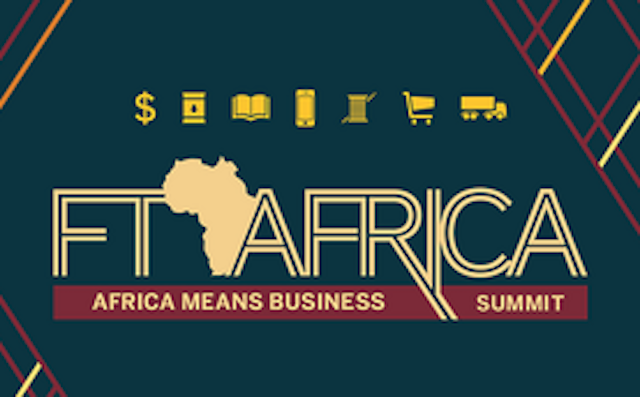FT Africa Summit to Spotlight Economic Innovation

The Financial Times has announced that the upcoming 12th edition of its flagship FT Africa Summit will focus on how countries like Nigeria and others across Africa are using innovation to drive economic transformation and navigate global shifts. The highly anticipated event is scheduled to take place from October 21 to 22, 2025, at The Peninsula in London.
With the theme “Africa in a Changing World,” this year’s summit comes at a pivotal time. Across the continent, governments and businesses are grappling with both challenges and opportunities brought about by global geopolitical uncertainty, economic restructuring, and the rise of transformative technologies like artificial intelligence, fintech, and green energy. The FT says the summit will shine a spotlight on how Africa’s youth-led entrepreneurial spirit and its emerging industries are shaping a future defined by sustainable and inclusive growth.
The conference promises to gather influential leaders from government, business, and civil society. It will serve as a platform for critical conversations on Africa’s place in a world that is evolving rapidly—economically, technologically, and politically.
According to the Financial Times, discussions will delve deep into the policy environments of key African economies, including Nigeria, Angola, and South Africa. These countries are undergoing major economic policy shifts as they seek to stabilize their domestic markets while also attracting global investment. Nigeria, in particular, will be under the spotlight as it continues to implement economic reforms under a new wave of leadership, with a renewed emphasis on digital infrastructure, entrepreneurship, and regional trade integration.
Speakers at the summit represent a wide range of voices from across the continent. Among those confirmed are Mahmoud Youssouf, Chairperson of the African Union Commission; Ronald Lamola, South Africa’s Minister of International Relations and Cooperation; Dr. David Sengeh, Chief Minister and Chief Innovation Officer for Sierra Leone; Vera Daves de Sousa, Angola’s Minister of Finance; Mohamed Mansour, Chairman of Infinity Power; and Mike Sangster, Senior Vice President for Africa at TotalEnergies.
This lineup reflects the summit’s goal of uniting thought leaders and decision-makers who are actively shaping Africa’s future—not just from the public sector, but also from private enterprise and the broader development space.
From fintech to energy, infrastructure to trade, the summit will explore how Africa can take advantage of its youthful population, its natural resources, and its rapidly expanding digital networks. Technology, in particular, is expected to be a major theme, as more African startups are gaining global recognition and attracting international funding. The role of artificial intelligence, digital payments, and data infrastructure in driving economic growth will be a key focus.
David Pilling, FT Africa Editor, highlighted the importance of the event in contextualizing Africa’s role within the broader global narrative. “Now in its 12th year, the FT Africa Summit offers a vital platform to examine Africa’s role in a rapidly changing world,” he said. “This year’s agenda brings together leaders and innovators to explore how African nations are approaching diplomacy, digital growth, and development priorities in bold new ways.”
His sentiments were echoed by Alec Russell, the FT’s Foreign Editor, who pointed to the broader geopolitical shifts that are redefining the global order. “South Africa’s hosting of the G20 summit in November underlines Africa’s elevated role on the global stage,” he noted. “But it also comes at the end of a testing year for the continent. The FT summit provides a forum for candid dialogue on Africa’s knotty geopolitical challenges and also fresh thinking on the quest for investment and innovation.”
The FT also emphasized that the summit has evolved into a key annual gathering for anyone invested in Africa’s future. It is seen as a major connector between African stakeholders and the global community, offering direct access to international investors, policymakers, development institutions, and private-sector innovators.
Over the years, the summit has grown in both scope and significance, providing an environment not only for high-level policy discussions but also for building relationships that can lead to tangible investments and collaborative projects. Past editions have seen major announcements and deal signings, and expectations are high that this year’s event will be equally impactful.
For Nigeria, the summit represents a critical opportunity. As the country works to revive its economy, which has faced challenges ranging from currency volatility to infrastructure deficits and youth unemployment, the focus on innovation is more relevant than ever. The Nigerian government has increasingly turned to digital solutions to improve governance, financial access, and job creation, and the summit offers a chance to showcase these efforts on a global stage.
Nigeria’s booming fintech sector, in particular, continues to attract attention from international investors. Startups in Lagos and Abuja are leading the way in digital banking, mobile payments, and blockchain technology, presenting opportunities not just for profit but for creating systems that are more inclusive and accessible to underserved populations.
Additionally, the summit will explore the energy transition and the push for greener, more sustainable infrastructure. For countries like Nigeria and Angola, where oil has historically dominated national economies, the need to diversify into renewable energy and value-added industries is more urgent than ever. Speakers will be addressing how these nations can balance development goals with environmental concerns while maintaining economic stability.
As the countdown begins to the October summit, excitement is building among business leaders, policymakers, and analysts eager to see how Africa will position itself in a world defined by uncertainty but also full of possibility.
By bringing together the people driving progress on the continent, the FT Africa Summit aims to do more than just talk. It’s about creating a space where ideas become action and where Africa’s next economic chapter can begin to take shape.





Responses